Monkey Business Idiom: Meaning, Origin, Usage & Exercises
6 min read
Updated On
-
Copy link
The idiom ‘monkey business’ means ‘thoughtless actions sometimes considered pranky or even unlawful’. Read this blog to learn about the meaning and origin of the word with examples, and practice the exercises with answers to achieve an IELTS band of 8+.
Table of Contents

Limited-Time Offer : Access a FREE 10-Day IELTS Study Plan!
From classrooms and corporate offices to childhood memories and adult frustrations, we have all encountered moments that lacked seriousness or involved sneaky behavior. In such cases, English speakers often use the vibrant idiom ‘monkey business’. It adds a richness in imagery and meaning when used to describe playful pranks or suspicious actions. So, for IELTS candidates aiming to impress with idiomatic range, ‘monkey business’ is a golden phrase that reflects both playfulness and precision.
In this blog, we will explore the meaning, origin, and usage of the idiom ‘monkey business’, one of the useful idioms for IELTS Speaking to score band 8.0+, and provide examples from the IELTS exam.
Monkey Business Idiom: Meaning
The idiom ‘monkey business’ refers to behavior that is silly, mischievous, or dishonest, especially when such behavior is inappropriate or unprofessional. It can describe actions that are either playful and unserious or suspicious and unethical, depending on the context.
The tone of this idiom can vary depending on the context:
- In casual, everyday situations, it has a light-hearted or humorous tone, especially when describing children or harmless pranks.
- In formal or serious discussions, especially involving business, law, or politics, it takes on a critical or disapproving tone, implying unethical or untrustworthy behavior.
Origin of Monkey Business Idiom
The word ‘monkeyshine’ is an ancestor of the idiom “Monkey business”. History dates back to the early 18th century, roughly in 1832. In the initial phases, it meant dishonesty. There are references to the idiom being used in this context in Jim Crow’s song mocking African-American slaves.
Also, there is some evidence of the term ‘monkey tricks’ being used by parents in England to refer to their children’s misconduct. The idiom with its current meaning was put down in writing in 1883 in W. Peck’s Bad Boy.
Over time, the idiom evolved to include dishonest or suspicious behavior, particularly in professional or serious settings. By the early 1900s, “monkey business” had become a common expression in newspapers, literature, and films.
Monkey Business Idiom Usage
Given below are some example sentences that show how ‘monkey business’ idiom can be used appropriately in daily contexts.
- The rich man was arrested because he did some monkey business and escaped the taxes.
- The shopkeeper was annoyed with the kids because they were always into some monkey business with the customers.
- The judge warned the defense lawyer not to get involved in monkey business.
- The teacher caught the boys doing some monkey business behind the classroom.
- “If there’s any monkey business with the audit, heads will roll.”
Use of Monkey Business Idiom in Scenarios
We have also included some examples in the form of scenarios to help you understand the many ways to use the idiom ‘monkey business’.
Scenario 1:
- Teacher [ pointing to student 1]: What is the biological name of hibiscus?
- Student 1: ………….Does not answer…………….
- Teacher [ pointing to student 2]: You?
- Student 2: ………….Does not answer…………….
- Teacher: I know you guys were into some monkey business. Shame on you guys for not knowing the answer.
Scenario 2:
- Friend 1: What happened to the bakery shop here?
- Friend 2: He sold it to a hotel.
- Friend 1: Why did he do it?
- Friend 2: He fell prey to some monkey business of people who lured him into a diamond business and landed him in debt.
- Friend 1: Oh! No.
Scenario 3:
- Old lady to mother of two kids: Your kids are not allowing me to lie down for a while.
- Angry mother to children: Can you stop your monkey business and allow her to sleep?
Are you looking for expert guidance on vocabulary building for IELTS?
Book an IELTS online class & talk to our experts NOW!
Monkey Business Idiom: Synonyms and Related Phrases
In the table below, you will find some of the best phrases to use in IELTS Speaking related to the idiom ‘monkey business’.
|
Idiom/Expression |
Meaning |
Example Sentence |
|---|---|---|
|
Horseplay |
rough or noisy play |
There was too much horseplay in the corridor, and someone got hurt. |
|
Fool around |
act playfully or without seriousness |
Don’t fool around during the meeting—it’s important. |
|
Skullduggery |
dishonest or underhanded behavior |
The corruption scandal exposed a lot of corporate skullduggery. |
|
Tomfoolery |
foolish or silly behavior |
There’s no time for tomfoolery; we need to get this done. |
|
Up to no good |
doing something mischievous or wrong |
Those kids hanging out by the alley looked like they were up to no good. |
Boost your IELTS vocabulary and achieve success with our free online webinars.
Monkey Business Idiom: Detailed Usage in IELTS Contexts
Now, it is time to explore how the ‘monkey business’ idiom can be applied effectively across various IELTS exam contexts, with sample answers tailored to common topics.
IELTS Speaking Part 2
- Cue Card Topic: Describe a time when you saw someone misbehaving.
- Answer Excerpt: “During a school trip, a few students were playing pranks on others and making loud noises despite being warned. It was pure monkey business - funny at first, but disruptive eventually. The teachers had to step in and end the chaos.”
IELTS Speaking Part 3
- Question: Do children misbehave more nowadays compared to the past?
- Answer: “Yes, I believe the current generation is more exposed to distractions. As a result, there’s more monkey business during school hours and even at home, partly due to limited supervision and digital influences.”
Monkey Business Idiom: Practice Exercise
You will find some exercises that will help you improve your understanding and application of the idiom ‘monkey business’.
Exercise A: Choose the correct option.
1 Which sentence correctly uses the idiom ‘monkey business’?
A He was swinging from trees like a monkey business.
B The monkey business was profitable last year.
C There’s no room for monkey business during the exam.
D She opened a monkey business in the zoo.
2 What is the tone of ‘monkey business’ in the sentence: “There seems to be some monkey business with the budget this quarter”?
A Optimistic
B Suspicious
C Boring
D Inspiring
3 Which idiom is closest in meaning to ‘monkey business’?
A Hit the nail on the head
B Paint the town red
C By the book
D Tomfoolery
4 Which sentence can correctly replace the idiom ‘monkey business’ with a literal expression without changing its meaning?
A The manager warned there would be consequences for any monkey business during the audit.
B The students’ monkey business helped them understand physics better.
C I’m tired of all the monkey business in this quiet library.
D A bit of monkey business now and then is good for team spirit.
5 In which scenario would the idiom ‘monkey business’ be inappropriate due to tone mismatch?
A A CEO discussing embezzlement during a press conference
B A parent describing their child’s pillow fight with friends
C A lawyer accusing the opposition of tampering with evidence in court
D A teacher talking about playful classroom pranks
Explore our Vocabulary for IELTS to boost your IELTS vocabulary!
Monkey Business Idiom: Answer Key for Practice Exercise
1 C
2 B
3 D
4 A
5 C
In conclusion, the idiom ‘monkey business’ is a lively, multi-purpose idiom that captures both innocent playfulness and potentially shady behavior. For IELTS learners, it offers the perfect opportunity to demonstrate natural, idiomatic command of English. So, learning idioms like these can boost your IELTS band score significantly, especially in the speaking tasks where natural phrasing is rewarded.
Useful Links:
- Turn Turtle Idiom: Meaning, Origin, Usage & Exercises
- Through and Through - Idiom of the Day for IELTS
- A Self-Made Man Idiom: Meaning, Origin, Usage & Exercises
- 10 Useful IELTS Speaking Tips to Impress the Examiner
- Useful Resources & Websites for IELTS Vocabulary
- IELTS Speaking Vocabulary - 30 Academic Words That Will Help You Score IELTS Band 9 (Part 1)
Explore IELTS Resources

Start Preparing for IELTS: Get Your 10-Day Study Plan Today!
Check out other Idioms
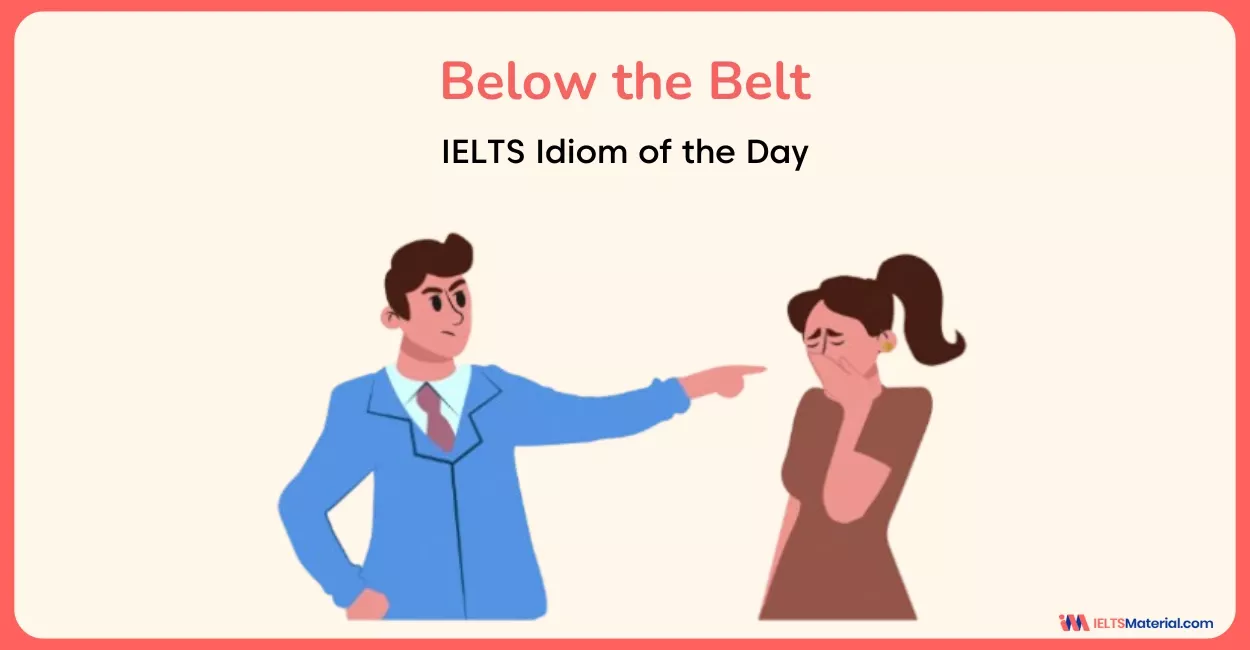
Haniya Yashfeen

Haniya Yashfeen
Recent Articles
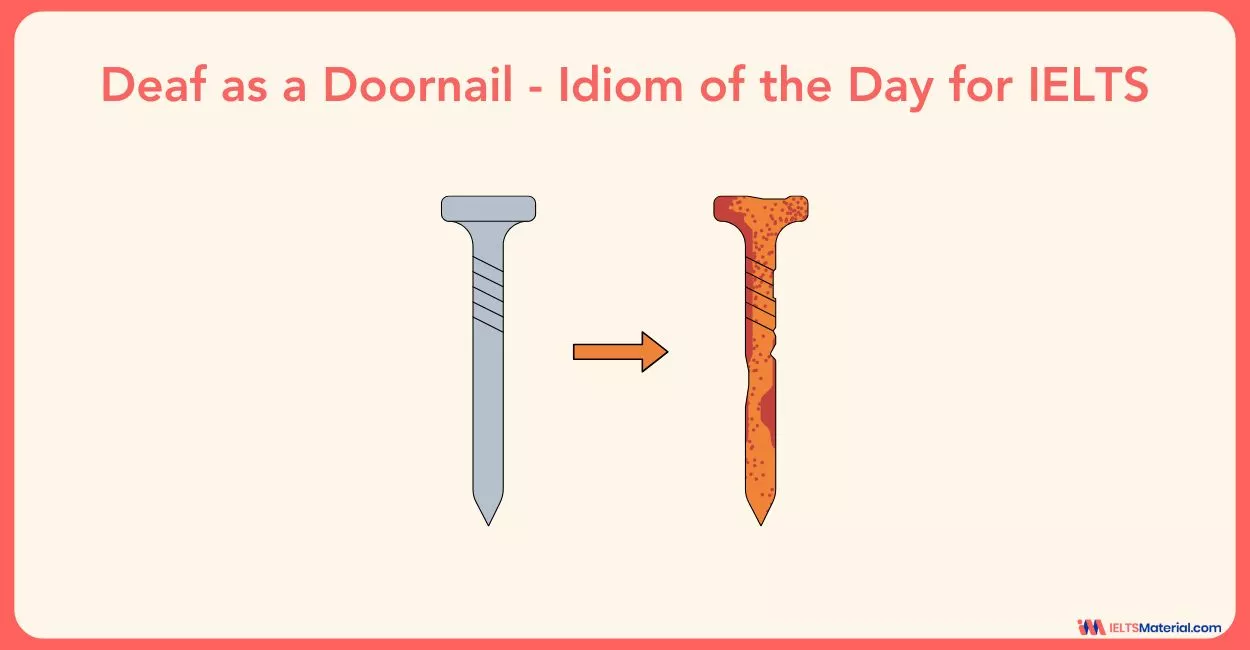
Kasturika Samanta

Prity Mallick

Nehasri Ravishenbagam
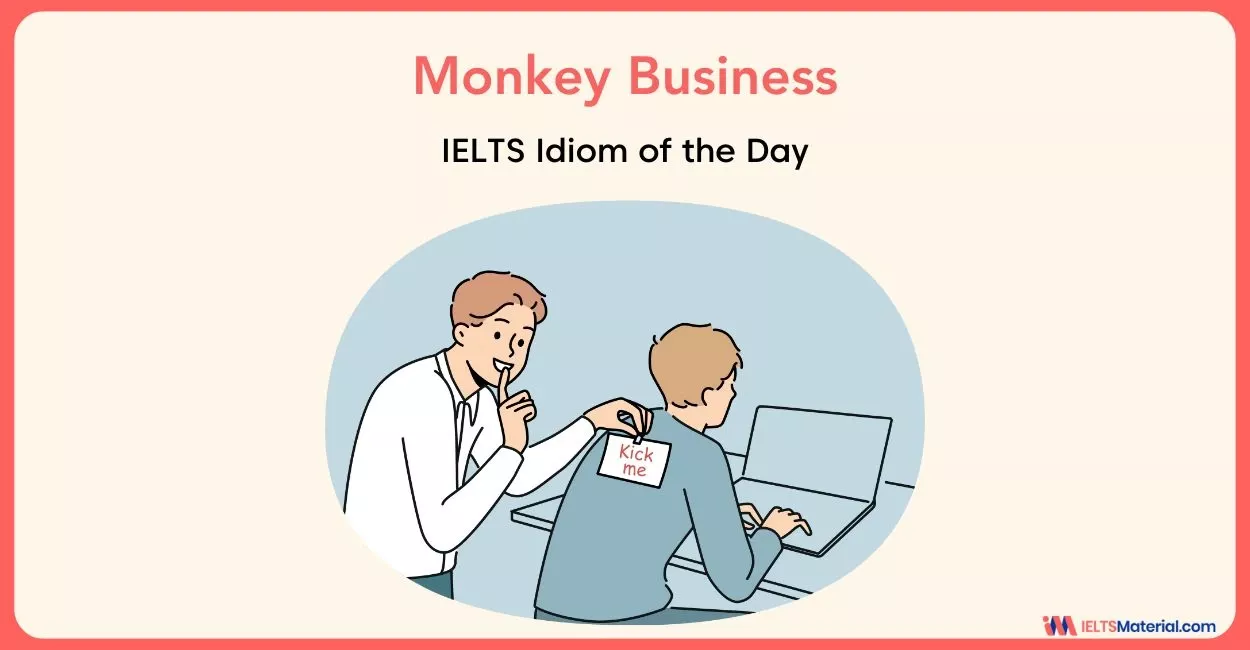

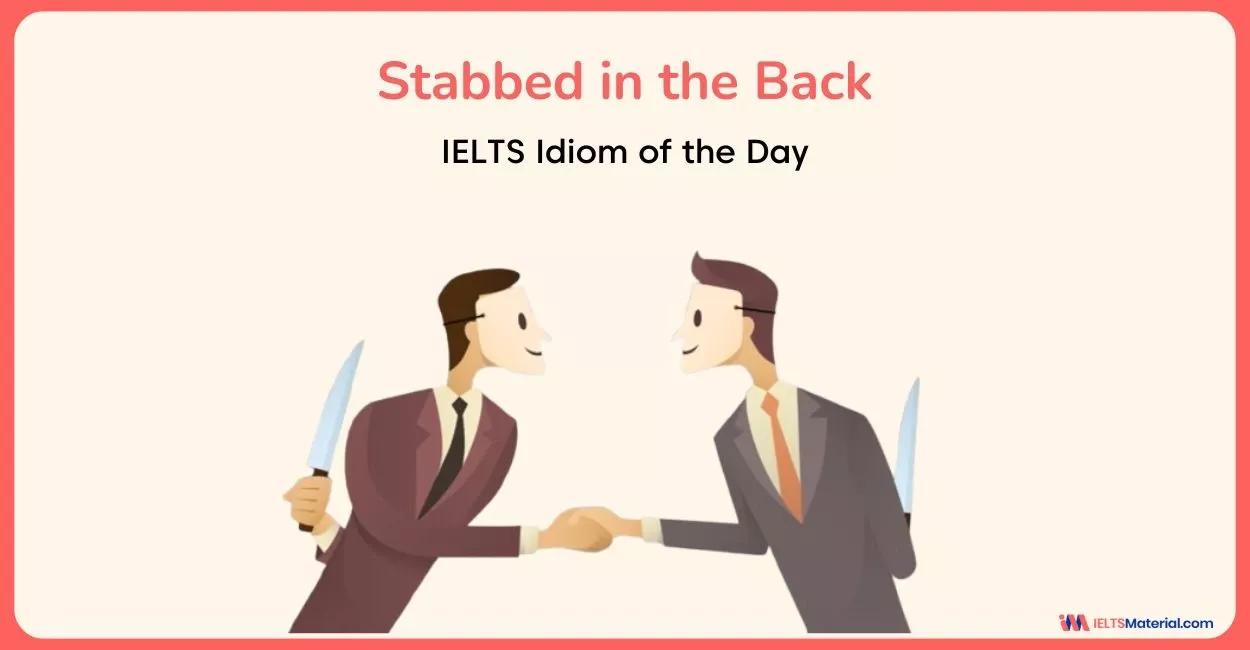

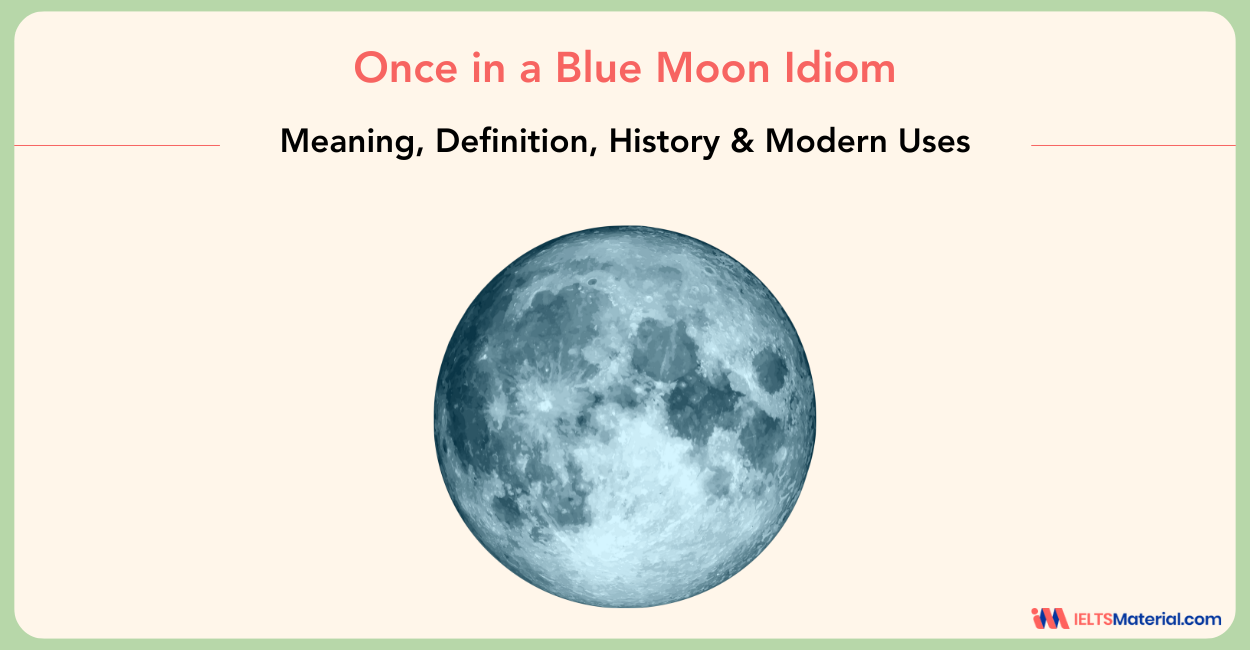


Post your Comments